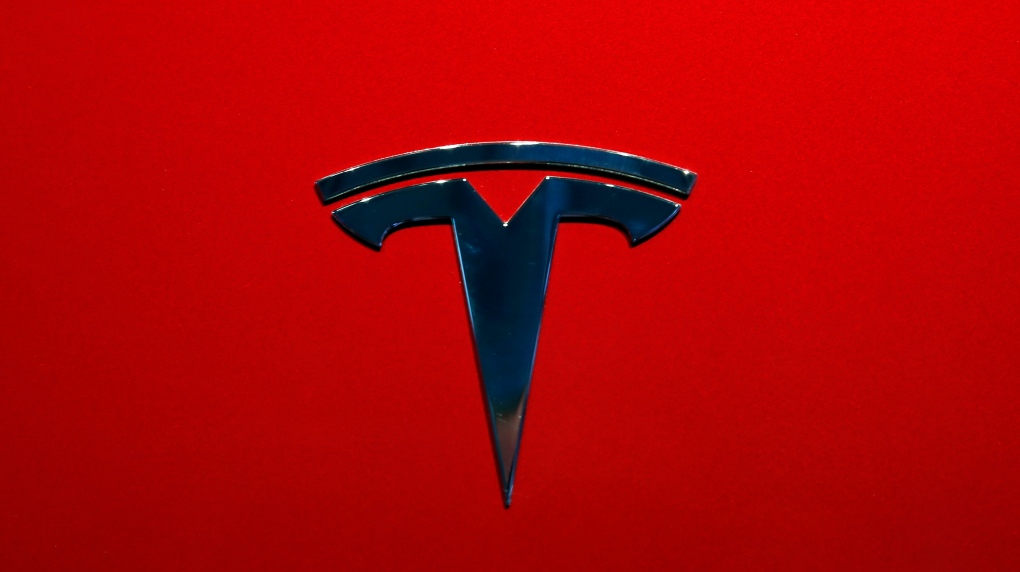
BREAKING International students will be allowed to work 24 hours a week starting in September
Immigration Minister Marc Miller says international students will be able to work off-campus up to 24 hours per week starting in September.
Tesla delivered its first electric semis to PepsiCo Thursday, more than three years after Elon Musk said his company would start making the trucks.
The Austin, Texas, company formally delivered the trucks at a factory near Reno, Nevada. The event was livestreamed on Twitter, which Musk now owns.
Musk drove one of three Tesla Semis in front of a crowd inside the factory. One was white, one was painted with a Pepsi logo, and another with Frito-Lay colors.
PepsiCo, which is based in Purchase, New York, is taking part in a zero-emissions freight project at a Frito-Lay facility in Modesto, California. That project is being funded by a US$15.4 million clean-freight technology grant from the California Air Resources Board that includes 15 Tesla battery-electric tractors and other electric- and natural-gas powered trucks.
Electric semis also would be eligible for a federal tax credit of up to US$40,000.
At an event in November of 2017 unveiling the Tesla Semi, Musk said production would begin in 2019 and the trucks would be able to follow each other autonomously in a convoy. But during Tesla's third-quarter earnings conference call in October he said the company's "Full Self Driving" system is not quite ready to be driverless.
Musk said the truck has a range per charge of 500 miles (800 kilometres) when pulling an 82,000-pound (37,000-kilo) load. The company plans to ramp up Semi production to make 50,000 trucks in 2024 in North America.
Competitors working on hydrogen-powered semis say battery-powered trucks won't work for long-haul carriers because it will take too long to recharge the huge batteries. Musk said hydrogen isn't needed for heavy trucking.

Immigration Minister Marc Miller says international students will be able to work off-campus up to 24 hours per week starting in September.
Toronto police say 12 people are facing a combined 102 charges in connection with an investigation into a major credit fraud scheme.
Members of Parliament are questioning why Canadian security officials did not inform them that they had been the target of Beijing-linked hackers, after learning from the FBI that the international parliamentary alliance they are a part of was in the crosshairs of the Chinese cyberattack in 2021.
Norovirus is spreading at a 'higher frequency' than expected in Canada, specifically, in Ontario and Alberta, according to the Public Health Agency of Canada.
B.C. Premier David Eby has joined other politicians denouncing remarks at a demonstration in Vancouver where protesters chanted “long live Oct. 7,” praising that day's attacks by Hamas on Israel.
Moderate drinking was once thought to have benefits for the heart, but better research methods have thrown cold water on that.
Tobacco manufacturers have until Tuesday to ensure every king-size cigarette produced for sale in Canada has a health warning printed directly on it.
The clock is ticking ahead of the deadline to file a 2023 income tax return. A personal finance expert explains why you should get them done -- even if you owe more than you can pay.
Anne Hathaway first shared she lost interest in drinking after a bad hangover in 2018. She’s now five years sober.

Since 1932, Montreal's Henri Henri has been filled to the brim with every possible kind of hat, from newsboy caps to feathered fedoras.
Police in Oak Bay, B.C., had to close a stretch of road Sunday to help an elephant seal named Emerson get safely back into the water.
Out of more than 9,000 entries from over 2,000 breweries in 50 countries, a handful of B.C. brews landed on the podium at the World Beer Cup this week.
Raneem, 10, lives with a neurological condition and liver disease and needs Cholbam, a medication, for a longer and healthier life.
The lawyer for a residential school survivor leading a proposed class-action defamation lawsuit against the Catholic Church over residential schools says the court action is a last resort.
Mounties in Nanaimo, B.C., say two late-night revellers are lucky their allegedly drunken antics weren't reported to police after security cameras captured the men trying to steal a heavy sign from a downtown business.
A property tax bill is perplexing a small townhouse community in Fergus, Ont.
When identical twin sisters Kim and Michelle Krezonoski were invited to compete against some of the world’s most elite female runners at last week’s Boston Marathon, they were in disbelief.
The giant stone statues guarding the Lions Gate Bridge have been dressed in custom Vancouver Canucks jerseys as the NHL playoffs get underway.
 FILE- The logo of Tesla model 3 is seen at the Auto show on Oct. 3, 2018, in Paris. Tesla delivered its first electric semis to PepsiCo Thursday, Dec. 1, 2022, more than three years after Elon Musk said the company would start making the trucks. (AP Photo/Christophe Ena, File)
FILE- The logo of Tesla model 3 is seen at the Auto show on Oct. 3, 2018, in Paris. Tesla delivered its first electric semis to PepsiCo Thursday, Dec. 1, 2022, more than three years after Elon Musk said the company would start making the trucks. (AP Photo/Christophe Ena, File)